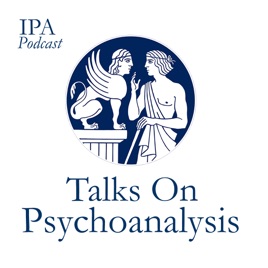
Advertise on podcast: Talks On Psychoanalysis
Rating
4.7 from
Country
This podcast has
87 episodes
Language
Explicit
No
Date created
2020/05/27
Average duration
28 min.
Release period
40 days
Description
Talks On Psychoanalysis shares topics published in the IPA Society Journals and Congress debates worldwide, brought to you in the voices of the original authors. This podcast is produced by International Psychoanalytical Association
Social media
Check Talks On Psychoanalysis social media presence
Podcast episodes
Check latest episodes from Talks On Psychoanalysis podcast
The loss of illusions. How does the analyst mourn? - Marc Hebbrecht.
2024/02/01
How does a psychoanalyst grapple with the sudden impact of a traumatic loss in their personal life, and how does it reverberate in their professional capacities? How do analysts navigate the challenges associated with illness or the inevitable effects of aging?Moving beyond the various losses in real life, analysts face the challenge of dealing with the loss and mourning of their illusions—illusions of immortality and invulnerability. Analysts are tasked with confronting their own finitude and limits, contemplating how to approach and address them.
In this podcast episode, Marc Hebbrecht delves into the nuanced scenarios of loss and disillusionment that psychoanalysts encounter throughout their careers, drawing insights from Nanni Moretti's film “La Camera del Figlio”, as an illustrative example.
Marc Hebbrecht is a psychiatrist and psychoanalyst. He is a full member, training analyst and current president of the Belgian Psychoanalytical Society (SBP). He lives in Tongeren, Belgium, and works in private practice and at the Leuven University Hospital for Psychiatry in Kortenberg, near Brussels. He was editor-in-chief of the Dutch Journal of Psychoanalysis. He teaches psychoanalytic psychotherapy at the University of Leuven and integrative psychotherapy at the University of Antwerp. He has written several books and published in major international psychoanalytical journals. His areas of interest are dreams, narcissism, erotic transference and psychoanalytic nosography.
Link to download the paper https://docs.google.com/document/d/1-Nyy_48pCt2QFuxA14lu3PbToGT6g9k-/edit?usp=share_link&ouid=112457875385152358388&rtpof=true&sd=true
A subtitled version of this podcast is available on our YouTube channel:https://youtube.com/playlist?list=PLhxiwE76e0QaOquX3GujdwNLFsgxUQNXz&si=yf381EDu3pess6Yz
This episode has been produced in collaboration with Julia-Flore Alibert.
This Podcast Series, published by the International Psychoanalytical Association, is part of the activities of the IPA Communication Committee and is produced by the IPA Podcast Editorial Team.
Head of the Podcast Editorial Team: Gaetano Pellegrini.Editing and Post-Production: Massimiliano Guerrieri.
This episode is available also in French
more
Bernard Penot - The act of the psychoanalyst in the service of subjectivation
2024/01/22
What does a psychoanalyst do in his practice with his patients? How can we define the act of the psychoanalyst at work? It is this vast question that Bernard Penot addresses in this podcast, talking about the act of the psychoanalyst in the service of subjectivation. Referring to Freud's work on transference and then to Lacan's work on the psychoanalytical act during the years of student revolts in France in may 1968, he manages to show us the active involvement of the psychoanalyst in the practice of the cures he provides.
Bernard Penot is a french psychoanalyst. He lives and works in Paris. He has been a full member and training analyst of the Paris Psychoanalytical Society since 1990. As neuropsychiatrist, he was the director of a day hospital for adolescents in Paris for many years. He is the author of several books published in french, and of numerous articles published in the French journal of psychoanalysis and the International journal of psychoanalysis.
Link to the paper https://docs.google.com/document/d/1YtXzBF8rEX4-Gpf6tGsajv6-tShQxbwT/edit?usp=sharing&ouid=112457875385152358388&rtpof=true&sd=true
This episode is available also in French
A subtitled version of this podcast is available on our YouTube channel:https://youtube.com/playlist?list=PLhxiwE76e0QaOquX3GujdwNLFsgxUQNXz&si=yf381EDu3pess6Yz
This episode has been produced in collaboration with Julia-Flore Alibert.
This Podcast Series, published by the International Psychoanalytical Association, is part of the activities of the IPA Communication Committee and is produced by the IPA Podcast Editorial Team.
Head of the Podcast Editorial Team: Gaetano Pellegrini.Editing and Post-Production: Massimiliano Guerrieri.
Music: Chopin_Waltzes_Op.69. Performer Olga Gurevich. https://musopen.org/music/4415-waltzes-op-69/
Cover Image: Blue human figure and fox in cage on black paper. Blum, Alexandra, artist - Courtesy Library of Congress. https://hdl.loc.gov/loc.pnp/pp.print
more
The place of sexuality in psychoanalytic treatment and training today - Rotraut De Clerck
2023/12/14
The place of sexuality in psychoanalytic treatment and training today: Can we observe a disappearance of sexuality in case reports and supervisions?
How does the evolving discourse on sexuality influence psychoanalytic practice and training? In an era where sexual dysphoria is seemingly on the rise, particularly among younger generations, questions arise about the current positioning of Freud's drive theory and the status of sexual issues in psychoanalytic education. Are we witnessing a shift where sexuality loses its central place within psychoanalytic thought?
In this episode of the IPA Talks On Psychoanalysis podcast series, we explore these questions through a comprehensive discussion. The focus is on the potential diminution of sexual themes in psychoanalytic case reports, as observed in recent years, and its implications for psychoanalytic methodology. The discourse originated in the 2021 supervisors' and training analysts' conference of the German Psychoanalytical Association (DPV) in Cologne, Germany and quickly spread to other places, reflecting global concerns about the reduced emphasis on sexuality in candidates' reports for qualification.
This exploration revisits some cornerstones of Freud's seminal theories but also examines the more modern theories and psychoanalytic techniques that emphasize transference-countertransference dynamics for the understanding of sexual fantasies and identities. The role of societal changes, shifts in sexual identity, and the impact of media on sexual behaviour and expression are critically analyzed.
The paper featured in this episode has been previously presented at various events, including a SPP Webinar and the 53rd IPA Congress in Cartagena. It has been translated and published in several psychoanalytic Journals. The IPA Talks On Psychoanalysis podcast series now offers it to its listeners in German, English, Spanish and Italian.
You can access the recent edition of the APA's Journal of Psychoanalysis, featuring a publication with two accompanying commentaries by Alicia Killner and Beatriz Zelcer, at this link: https://revista-de-psicoanalisis.apa.org.ar
Rotraut De Clerck is a renowned psychoanalyst of the German Psychoanalytical Association (DPV) and has been a long-term guest to the British Psychoanalytic Society (BPS). Her work notably intersects psychoanalysis with culture and public discourse. She has carried out the “Psychoanalysis in Literature – Literature in Psychoanalysis” series at the Literaturhaus Frankfurt, fostering dialogue between contemporary writers and Freud's texts. De Clerck's clinical interests include theories on the dynamic interplay of narcissism and object love, of the unconscious and changes in sexuality, including homosexuality “neo-sexualities” and the concepts of masochism. De Clerck's contributions extend to psychoanalytic portraits of literary figures like Albert Camus, Virginia Woolf, painters like Maria Lassnig and notably Lucian Freud. She chairs the EPF's “Psychoanalysis and Literature group and serves as a Consultant on the IPA Culture Committee. Her recent projects focus on the place of sexuality in psychoanalytic theory and practice today.
Link to the paper https://docs.google.com/document/d/1jwtEt3rBf0BSGsl_uFxv6xwVrPPr_dvR/edit?usp=drive_link&ouid=112457875385152358388&rtpof=true&sd=true
This episode is available also in:
German
Spanish
Italian
A subtitled version of this podcast is available on our YouTube channel:https://youtube.com/playlist?list=PLhxiwE76e0QaOquX3GujdwNLFsgxUQNXz&si=yf381EDu3pess6Yz
This Podcast Series, published by the International Psychoanalytical Association, is part of the activities of the IPA Communication Committee and is produced by the IPA Podcast Editorial Team.
Head of the Podcast Editorial Team: Gaetano Pellegrini.Editing and Post-Production: Massimiliano Guerrieri.
more
Relentlessness Of Life Instinct As The Source Of Inconsolability And Greed - Salman Akhtar
2023/11/03
Still Life with Fruit and Wineglasses on a Silver Plate, c. 1659-1660, Willem Kalf. Courtesy Mauritshuis, The Hague.
Why do some people seem unable to achieve full satisfaction in things? What keeps them dissatisfied even after achieving their goals? And why does the Ego persist in avoiding mourning and sticking to the same solutions?
In this episode of the IPA Talks On Psychoanalysis podcast series, Salman Akhtar presents his theory that redefines the classical Kleinian conception of the rupture between Gratification and Satisfaction as a consequence of the death instinct derived attack upon the provider of gratification. This should indeed lead us to the search for a state of tranquility rather than an increase in tension. What role does the Life Instinct, instead, play in this restless search, in this excessive intense refusal to believe that further gratification shall not result in satisfaction?
This exploration not only offers a theoretical perspective but also has profound implications for clinical practice and our understanding of psychoanalytic technique.
The episode we share with you today is sourced from the wealth of content presented at the 53rd IPA Congress in Cartagena. It was a part of the "Fanning the Flames" Panel, featuring Salman Akhtar, alongside Cordelia Schmidt-Hellerau, Claudia Antonelli, and moderated by Fred Busch. We are delighted to announce the opportunity to watch the complete panel, along with many other outstanding presentations from the Cartagena Congress, on the www.ipa.world website.
Salman Akhtar, MD is an internationally known psychiatrist, psychoanalyst, writer, and poet based in the United States. He has published 108 authored or edited books and given lectures and workshops in over 40 countries. Dr.Akhtar has served on the editorial boards of the three most important journals of our field, namely Journal of the American Psychoanalytic Association (JAPA), IJP, and The Psychoanalytic Quarterly PQ. His books have been translated in many languages and he has received numerous professional honors, including the highly prestigious Sigourney Award for Distinguished Contributions to Psychoanalysis. Recently a 10-volume set of his Selected Papers was released at a festive ceremony at the Freud House& Museum in London. Dr. Akhtar has published 18 collections of poetry and serves as a Scholar-in-Residence at the Inter-Act Thater Company in Philadelphia.
A subtitled version of this podcast is available on our YouTube channel:
https://youtube.com/playlist?list=PLhxiwE76e0QaOquX3GujdwNLFsgxUQNXz&si=yf381EDu3pess6Yz
more
Bernard Golse - A plea for a third topicality.
2023/10/12
A plea for a third topicality.An intrapsychic representation of the intersubjective bond,even before the discovery of the object.
Can psychoanalysis be useful with infants? How can we think through concepts of metapsychology with infants? The two Freudian topics are in reference to the instances which are fruit of the completed intrapsychic differentiation process. How can they be useful with infants, who by nature are still undifferentiated and unfinished? In this episode Bernard Golse presents us with his arguments for a third topical approach. Drawing on his extensive experience of parent-infant therapy, he proposes a metapsychology of the primitive pre-object bond, a perinatal topic of mental representation of the intersubjective bond prior to differentiation of instances and object discovery.
Bernard Golse is a child psychiatrist and psychoanalyst (member of the Association Psychanalytiquede France) and Professor Emeritus of Child and Adolescent Psychiatry at the Université Paris Cité. For many years he was head of the Child Psychiatry Department at the Necker-Enfants MaladesHospital in Paris. Among other associative activities, he is presently chair of the European Association of Child and Adolescent Psychopathology and he recently founded the Institut Contemporain de l'Enfance to promote psychological care and support for infants, children, and adolescents, with reference to psychoanalysis, psychopathology and pedagogy with links to the world of arts and culture because of the dialectic that exists between therapeutic creativity and artistic creativity. The three areas in which he has been most involved are early infant development, autism spectrum disorders and adoption issues. He is therefore particularly focused on the question of links.
A subtitled version of this podcast is available on our YouTube channel:https://youtube.com/playlist?list=PLhxiwE76e0QaOquX3GujdwNLFsgxUQNXz&si=yf381EDu3pess6Yz
This episode has been produced in collaboration with Julia-Flore Alibert.
This Podcast Series, published by the International Psychoanalytical Association, is part of the activities of the IPA Communication Committee and is produced by the IPA Podcast Editorial Team.
Head of the Podcast Editorial Team: Gaetano Pellegrini.Editing and Post-Production: Massimiliano Guerrieri.
You can download the written text of this paper from this link:https://docs.google.com/document/d/12dvhD8riz2DSwqYN7a8qOmbIQYndYUyF/edit?usp=drive_link&ouid=112457875385152358388&rtpof=true&sd=true
This episode is available also in French
Recommended Links and Readings:
S. Missonnier and B. Golse, The third topography: a topography of the bond, 89-114. In : Autistic phenomena and unrepresented states – Explorations in the emergence of Self (edited by H.B. LEVINE and J.SANTAMARIA).
Phenix Publishing House Ltd, “Firing the mind”, A.Santamaria Picoanálisis México, Oxfordshire, 2023
more
The distorted Oedipus complex - François Richard
2023/06/12
How can we think about the Oedipus complex today in a contemporary society beset by a crisis of ideals and the emergence of new forms of sexuality? Neurosis has not disappeared, but borderline states have become a prevalent adaptive mode in a world lacking solid authority figures and sinking into symbolic misery.
In this episode, François Richard is proposing his concept of the distorted Oedipus complex. Beginning with theoretical conceptions of Freud and then of his successors, he is suggesting that a specific form of the infantile oedipus complex persisting in adolescents and adults, give us a better understanding of borderline patients.
François Richard is a psychoanalyst and a member of the Paris Psychoanalytical Society. He is a psychoanalyst in private practice in Paris and has worked for many years in various medical and psychological institutions. As a clinical psychologist, he has also studied social sciences, which broadens his reflection on the impact of social factors on individual psychology. Professor of psychopathology at the Université Paris Cité, he has directed numerous theses and colloquiums, and at one time edited the journal Adolescence. He is the author of several books that have been subject of debates, including Le Processus de subjectivation à l'adolescence (2001), L'actuel malaise dans la culture (2011) and Le Surmoi perverti. His current research focuses on the current crisis of civilisation, the processes of sublimation (particularly in literature), sexual polymorphism, borderline states, and the relationship between frame and countertransference in the face of what he proposes to think of as a structurally deformed Oedipus complex.
Link to the paper https://docs.google.com/document/d/1ju6QxykJe0UK0JBu3QcLdzHZQOveq3HF/edit?usp=share_link&ouid=112457875385152358388&rtpof=true&sd=true
This episode is available also in French
This Podcast Series, published by the International Psychoanalytical Association, is part of the activities of the IPA Communication Committee and is produced by the IPA Podcast Editorial Team. Editor Gaetano Pellegrini.This episode was curated by Julia-Flore Alibert. Introduction written and read by Julia-Flore Alibert.Sound Engineer: Massimiliano Guerrieri.
more
Time matters - the self and its continuity. Georg Northoff.
2023/04/20
Our self is always there and present throughout our whole life. Despite the many social, environmental and ecological changes as well as the major bodily changes, our self remains one and the same throughout the changes of our life. Where and how is the temporal continuity of our self coming from?
Georg Northoff is a philosopher, neuroscientist and psychiatrist, holding degrees in all three disciplines. He works in Ottawa/Canada holding a Canada Research Chair for Mind, Brain Imaging, and Neuroethics. His research focuses on the relationship between brain and mind. The question driving him is: “why and how can our brain construct mental features like self, consciousness, etc.” His approach to this complex answer is as unique as it is simple: he proposes that the brain’s constitutes its own inner time and space which, if properly aligned to and synchronized with the world’s outer time and space, will yield mental features like self and consciousness. This led him to develop a spatiotemporal theory of brain-mind relationship in all three fields, neuroscience, psychiatry and philosophy.
He is one of the leading figures in linking philosophy, psychiatry, and neuroscience having developed non-reductive neurophilosophy. He authored over 300 journal articles and 18 books in neuroscience, psychiatry and philosophy which are translated into several languages including “Neuro-philosophy and the Healthy Mind” (2016) Norton Publisher, and “Neurowaves" (McGill University Press 2023) and "Neuropsychoanalysis, an introduction" (Routledge 2023).
This episode is available also in German
All papers etc, can be found on the website: www.georgnorthoff.com
See recent Podcast for broader audience: www.youtube.com/watch?v=lDX3xOVHB18&t=237s
References:
Spagnolo R, Northoff G (2022) The dynamic self in psychoanalysis. Routledge
Northoff G (2023) Neuropsychoanalysis. An introduction. Routledge publisher
Northoff G (2023) Neurowaves. Brain, time and consciousness. McGill University Press
Northoff G, Scalabrini A. (2021) "Project for a Spatiotemporal Neuroscience" - Brain and Psyche Share Their Topography and Dynamic.
more
The Self and its continuity: Out of body experience - Rosa Spagnolo.
2023/03/21
What is the relationship between the mind and the body, and how does it shape our understanding of the self? In this episode, Rosa Spagnolo presents her reflections on the topic, published in her recent book, written with Georg Northoff. In the book, she delves into how out-of-body experiences can shed light on the complex dynamics between the self and the world. She examines the relationship between the body and the brain, the role of time and space in shaping our experience of the self, and the intersection between psychoanalysis and neuroscience. Along the way, she touches on the potential implications of virtual reality on our sense of self.
Rosa Spagnolo, MD, Child Neuropsychiatrist; Developmental Psychotherapist; Psychoanalyst, Full Member of the Italian Psychoanalytic Society (SPI), IPA Member. She is Co-Chair and co-founder of the Italian Psychoanalytic Dialogues (IPD) association, which organizes annual Rome Conferences, on psychoanalytic and neuroscientific issues. She is a member of NPSA and chair of the "Italian Group of NPSA". She is chair of the IPAWEB page: the Psychoanalysis in the Age of Neuroscience and chair of the SPIWEB page of Neuroscience.
Teaches "Psychology of Nutrition" and "Treatment of Eating Disorders" at the University - Tor Vergata -, Rome, Master II level in "Diagnosis and Treatment of Eating and Weight Disorders". Teaches "Psychoanalysis and Culture" at the Graduate School of Psychoanalytic and Group Analytic Psychotherapy. Works in Rome at the Filippo Smaldone Institute for the rehabilitation of deafness, learning and speech disorders, neurodevelopmental disorders. She is the author of numerous publications as well as a conference speaker and lecturer on neuropsychiatric developmental disorders and psychoanalytical topics.
Books
Spagnolo R. (2012): La forza delle immagini attraverso la catena associativa dell’analista. In: Domenico Chianese e Andreina Fontana (Eds), Per un sapere dei sensi. Immagini ed estetica psicoanalitica. Roma: Edizione Alpes, 2012
Spagnolo R.(2016) : La ricerca empirica sul sogno, in: Antonello Colli. Psicoterapia Psicodiamica (pp. 232-234). Roma : Carrocci Editore, 2016
Spagnolo, R. (2017). An unexpected Pathway for Interpsychic Exchange: Music in the analysis of Young Adult. In B.N. Seitler & K.S. Kleinman (Eds.), Essays from Cradle to Couch (pp. 341-357). IPBooks, Astoria: NY.
Spagnolo R. (ED) (2018): Building Bridges, The impact of Neuropsychoanalysis on Psychoanalytic Clinical Sessions. Routledge, London and New York. Nominato al Gradiva Awards, New York, 2019
Spagnolo R. & Northoff G.(2021): The Dynamic Self in Psychoanalysis. Neuroscientific foundations and clinical cases. Routledge, London and New York
Spagnolo R. & Northoff G (2022): Il Sè dinamico in psicoanalisi. Fondamenti Neuroscientifici e clinica Psicoanalitica. Franco Angeli Editore.
Spagnolo R. (2007) "Chantal" - Maremmi Editore, Firenze.
This episode is available also in Italian
This episode was read by Eleonora Maruca.Editing and Post-Production: Massimiliano Guerrieri.
more
Notes on the aptitude for happiness - Marion Minerbo
2023/03/06
Happiness is humans' undeniable desire, but why does it seem so within reach for some, and so rare and difficult for others? What makes it possible from the psychic perspective?
In this episode, Dr. Marion Minerbo shares with us, in a clear and concise voice, her studies on the aptitude for happiness. The author describes brief moments of happiness and from them highlights the psychic elements engaged in making this experience possible. Firmly based on psychoanalytic theory and illustrated with simple everyday life moments, she illuminates and clarifies what she calls aptitude for happiness".
Marion Minerbo, MD, PhD. is a full member and training analyst at the Brazilian Psychoanalytic Society of São Paulo. In 2015 she received the award for the best work of training analysts at the Brazilian Congress of Psychoanalysis on "Contributions to a theory on the constitution of the cruel superego". She has previously published dozens of articles and the following books: "Conversations on clinical practice"; "New dialogues on psychoanalytic clinic”; "Neurosis and non-neurosis” ; "Transference and Countertransference"; "A posteriori, a journey", all by Blucher Editorial, São Paulo, all of which published in Portuguese.
Her new book,“Notes on the Aptitude for Happiness”,is in press.
This episode is available also in French
and Portuguese
more
Hidden unconscious, buried unconscious, implicit unconscious - Stefano Bolognini.
2023/01/11
This paper was published in The Italian Psychoanalytic Annual issue 16, in 2022. The full text can be found on the publisher Raffaello Cortina's website:
https://riviste.raffaellocortina.it/scheda-articolo_digital/stefano-bolognini/hidden-unconscious-buried-unconscious-implicit-unconscious-Annual_2022_7-3814.html
The Italian Psychoanalytic Annual 2022/16 https://riviste.raffaellocortina.it/scheda-fascicolo_contenitore_digital/autori-vari/the-italian-psychoanalytic-annual-2022-16-9788832854947-3807.html
The current extension of the concept of the Unconscious to different levels, configurations, and functioning of the mind is the result of decades of collective reflection on clinical work as well as on theory. Analysts today have a broader, more refined and complex knowledge of defensive and transformative processes, and this has also led to an evolution in technique. The paper we present today is a combination of psychoanalytic theory and technique through two clinical cases that present complex articulations of spurious unconscious functional areas and modalities, alternately the repressed and the not repressed.
Stefano Bolognini is a psychiatrist and training analyst of the Italian Psychoanalytic Society, of which he was Scientific Secretary and President. After serving as Representative on the first IPA Board, he became its President in 2013 and served in that role until 2017.He also founded the "IPA Encyclopedic Dictionary of Psychoanalysis" and is a member of the Advisory Board of the International Psychoanalytic University Berlin (IPU), Honorary Member of the New York Contemporary Freudian Society (NYCFS), and of the Los Angeles Institute and Society for Psychoanalytic Studies (LAISPS). Bolognini was a member of the Editorial Board of the International Journal of Psychoanalysis for 10 years, and has published over 250 psychoanalytic works, both books and papers.
This Podcast Series, published by the International Psychoanalytical Association, is part of the activities of the IPA Communication Committee and is produced by the IPA Podcast Editorial Team. Head of the Podcast Editorial Team: Gaetano Pellegrini.
Editing and Post-Production: Massimiliano Guerrieri.Proof Reading: Elizabeth Danze and Valentine Moscovici.
more
Why and what is gender for? - Juan Francisco Artaloytia.
2022/12/16
For those interested in the extensive written version on which this short talk is based, please contact the author at jfartaloytia@gmail.com .
From the Freudian conception of psychic bisexuality to the current approaches of transgenderism, the question of gender has knocked at the door of psychoanalysis to account for its articulation in the social context of its time. The different ways that people position themselves in life, confronts us with the challenge of thinking psychoanalytically about gender today.
Thus, this episode is entitled “Why and what is gender for?”.
Juan Francisco Artaloytia takes up this question. He talks about how and why gender emerged in the history of language and the species, and to what extent gender is still as important as it was in its origins.
Link to the paper https://docs.google.com/document/d/1QTbz_6lIbJRrl4N4QBwRwSAWZoP7vlgG/edit?usp=share_link&ouid=112457875385152358388&rtpof=true&sd=true
Juan Francisco Artaloytia holds a PhD, is a medical doctor, a psychiatrist and training Psychoanalyst of the Psychoanalytic Association of Madrid. He has been Secretary and Editor in Chief of the Journal of Psychoanalysis of the APM. He is currently Representative for Europe on the Board of the International Psychoanalytic Association. He has published articles and given lectures in national and international media. Freudian metapsychology is his field of reference, and topics of his special interests are psychosis, psychoanalytic training, and issues such as homosexuality and transsexuality. He has just published the book "Una metapsicología freudiana para el siglo XXI" (A Freudian metapsychology for the twenty-first century), which is a recapitulation of his work over the last 15 years.
this episode is available also in Spanish
This Podcast Series, published by the International Psychoanalytical Association, is part of the activities of the IPA Communication Committee and is produced by the IPA Podcast Editorial Team. Head of the Podcast Editorial Team is Gaetano Pellegrini. This episode was produced in collaboration with Ana Maria Martin Solar.
Editing and Post-Production: Massimiliano Guerrieri.
more
External and Internal Changes in Recent Times - Mercedes Puchol.
2022/11/21
How do recent external and internal changes emerge in the theoretical-technical and clinical understanding of psychoanalysis today? How to think psychoanalytically about the topic of war today more than ever?
In this episode entitled External and internal changes in recent times, Mercedes Puchol reflects, among other things, on the impact of these changes in relation to remote analysis, and considers the notion of analysability, originally postulated by Carlos Paz in 1971, to be fundamental for thinking about all the challenges and questions that remote analysis raises.
Finally, the author, faced with the level of destruction and pain that the Russian invasion of Ukraine has caused, reflects on the importance of identifications in the "construction of emotional ties that operate against war (Freud, 1933)".
Mercedes Puchol is a clinical psychologist and psychoanalyst. She lives and works in Madrid with adults, children and adolescents. She is training analyst of the Madrid Psychoanalytical Association (APM) as well as its current President. She is a member of the Organising Committee of the Spanish Language Psychoanalysts Encounters and of the Committee of the European Psychoanalytic Conference for University Students (EPCUS).
Link to the paper https://docs.google.com/document/d/1mSeD-BL9yahdsV3XzfbovanCwRnXkp8S/edit?usp=share_link&ouid=112457875385152358388&rtpof=true&sd=true
This episode is available also in Spanish
This Podcast Series, published by the International Psychoanalytical Association, is part of the activities of the IPA Communication Committee and is produced by the IPA Podcast Editorial Team. Head of the Podcast Editorial Team is Gaetano Pellegrini. This episode was produced in collaboration with Ana Maria Martin Solar.
Editing and Post-Production: Massimiliano Guerrieri.
more
Podcast sponsorship advertising
Start advertising on Talks On Psychoanalysis & sponsor relevant audience podcasts
You may also like these social sciences Podcasts
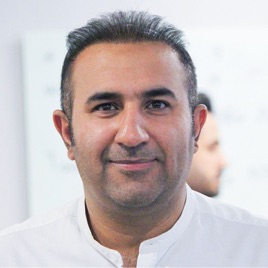
4.6
803
256
گوش نیوش های دکتر شیری
Dr. Shiri

4.8
151
181
Razib Khan's Unsupervised Learning
Razib Khan
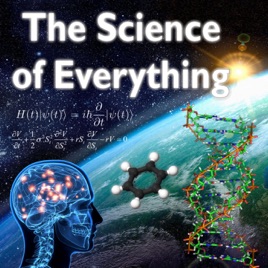
4.8
569
163
The Science of Everything Podcast
James Fodor

4.6
4515
383
The Brohio Podcast
Aliens, Conspiracy Theories, Paranormal, Famous Murders, Cryptozoology, Strange Occurrences, Monsters, UFOs, True Crime, Demons, Occult, Urban Legends, Comedy
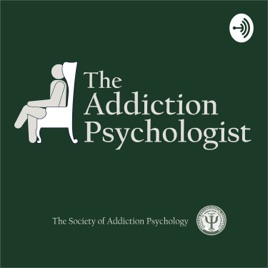
4.5
33
50
The Addiction Psychologist
Samuel Acuff and Noah Emery

4.9
17
203
The Litigation Psychology Podcast
litpsych
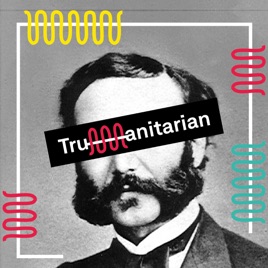
5
5
73
Trumanitarian
Trumanitarian

4.3
64
86
悬疑案件 | 扑朔迷离的案件合集
怡楽电台

5
32
36
Social Worker's Break Room
Treehouse Sound Inc.

4
20
76
Aporia Podcast
Aporia Magazine



